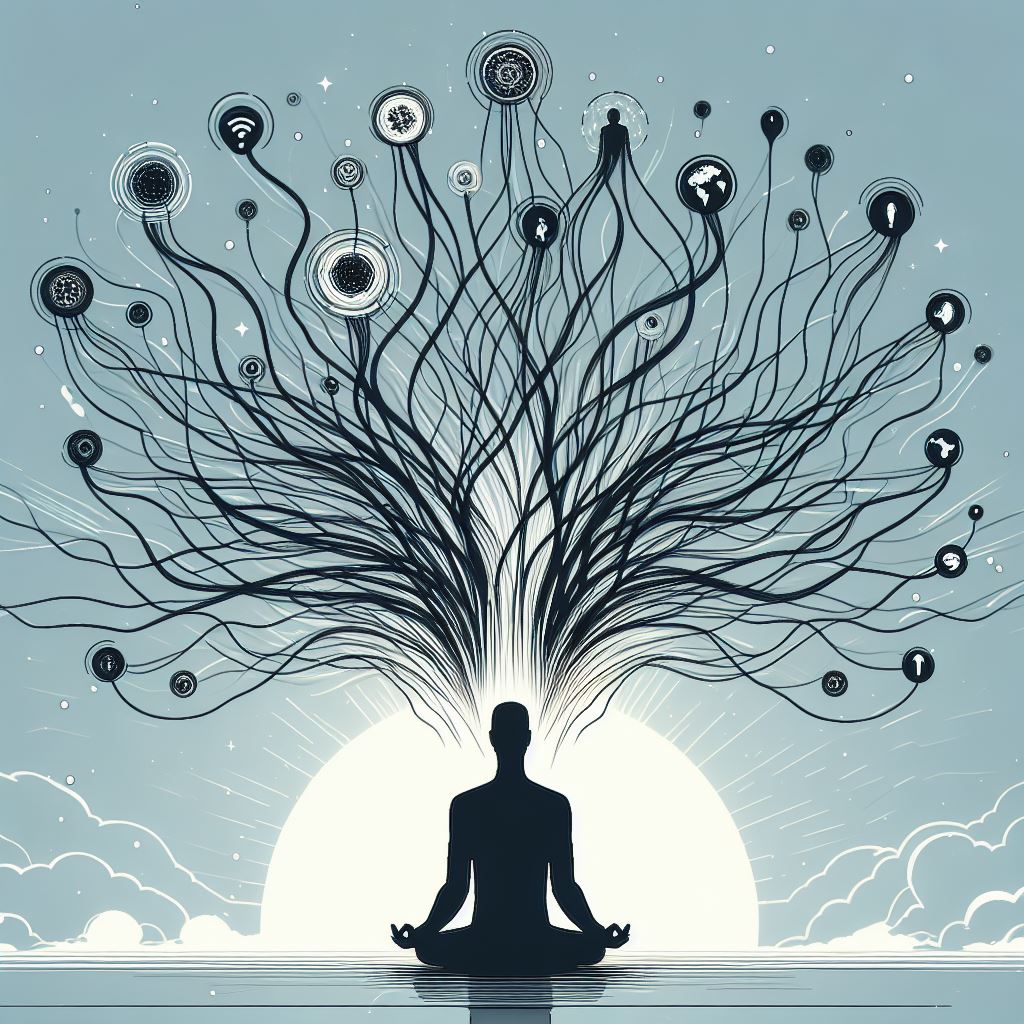
According to a fascinating new study, having a strong sense of “oneness” with the world around you is positively associated with greater happiness and life satisfaction.
Have you ever felt a sense of oneness with the universe?
“Oneness” is the idea that everything is interconnected and interdependent. When we experience “oneness” in our lives, it’s a deep feeling that we aren’t separate from anything that exists but instead we are part of a much greater whole.
The people we are around. The environment we live in. The stars at night. None of these things are completely separate from us. And to feel that you are “one” with it all can be a very empowering and enlightening experience.
A fascinating new study published in Psychology of Religion and Spirituality discovered a positive link between beliefs in “oneness” and greater happiness and life satisfaction.
In the study, researchers surveyed over 75,000 people. First, they had them take a questionnaire measuring their belief in “oneness,” by asking them how much they agree with statements such as, “I believe that everything in the world is based on a common principle” and “Everything in the world is interdependent and influenced by each other.”
Participants were then asked to take several other tests measuring concepts often related to “oneness,” such as “social connectedness,” “connectedness to nature,” and “empathy,” as well as overall “life satisfaction.” Researchers found that belief in oneness positively correlated to all of these other measures.
The most interesting part is that the association between belief in “oneness” and life satisfaction was still strong regardless of whether the person was religious or not.
This is a powerful reminder of how important it is to see the “oneness” in life, which is something we can easily observe in all areas of our existence: how we influence others (and how they influence us) and how we influence our environment (and how it influences us).
Overcoming the “self”/”other” dichotomy (seeing things as one) is a key component to most religious and spiritual conceptions of enlightenment.
According to philosopher Alan Watts, the idea that the organism is separate from its environment is “the great social lie” that we must learn to see through if we want to be liberated from our delusional perspective of reality.
While the belief in “oneness” is something that can be understood in theory, it is also something that can be directly experienced.
The most common avenues to experiencing “oneness” include meditation, religious rituals, psychedelics, and mystical experiences.
While doing these activities, people can cultivate such a strong feeling of oneness that they sometimes experience what is called “ego death,” which is when you lose complete sense of your self and identity (for a temporary period of time).
Other experiences that can bring you closer to “oneness” include engaging in a creative activity that puts you into a state of flow (which is the experience of becoming one with your actions) or seeking more awe-inspiring experiences (which can often make you feel you’re a part of a “bigger picture” in life).
Of course, understanding or experiencing “oneness” isn’t the same thing as practicing it in your daily life.
Once you understand the interconnectedness of everything, it often makes you more mindful of how you are influencing the world around you. It doesn’t only change your perspective, but your actions as well. Because you recognize that what you think, say, and do has an effect on others in a deep way.
When you see this in your daily actions, it often motivates you to change yourself in big ways. You start to change how you think, speak, and act, so that you have a more positive effect on others and the world in general.
Do you see the “oneness” in your life? How can you embrace it more? How can you act in new ways that are consistent with this belief?
Enter your email to stay updated on new articles in self improvement:
